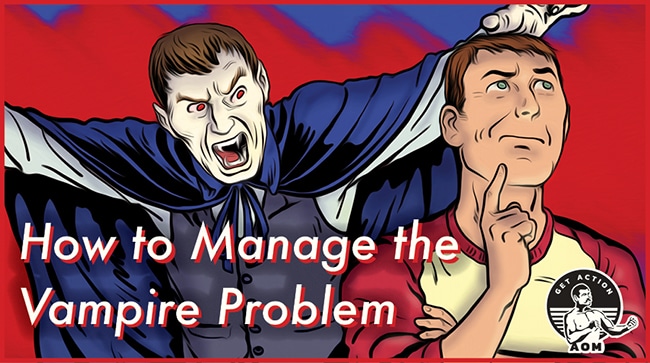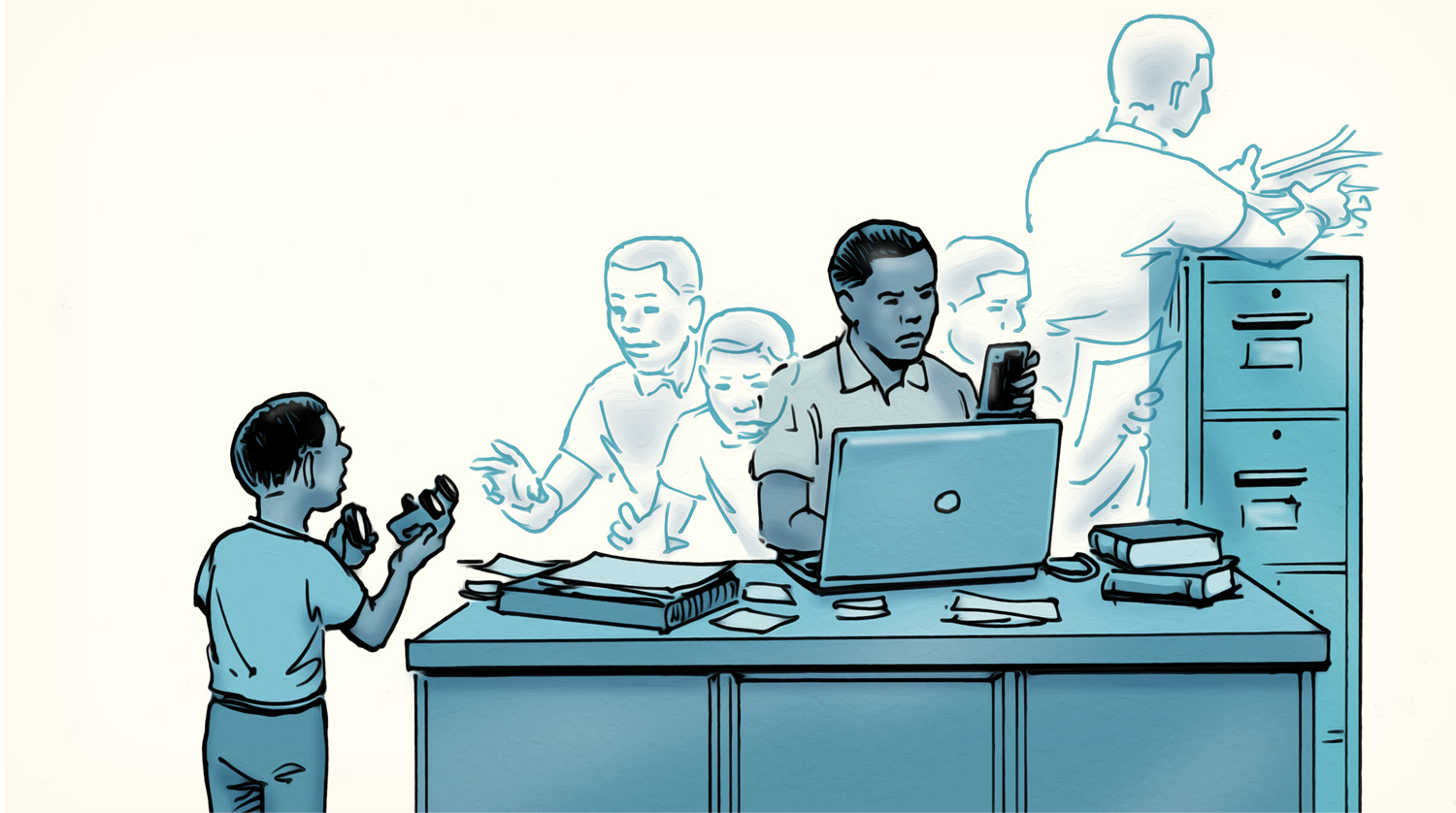
Let’s say you have a chance to become a vampire, where you’d get the immortality and the supernatural powers, but you wouldn’t have to hurt anyone. Would you do it?
It would be a hard decision to make. Not only will the transformation involve a radical change in your habits — moving from sleeping at night to sleeping during the day, from eating food to dining exclusively on blood — but once you become a vampire, there’s no going back to ordinary mortal life; you’re going to be a vampire, forever.
Making the decision is not only a matter of figuring out if your current self would like being a vampire. Once you’re transformed into a vampire, you’ll become a different person. So, will that person like being a vampire?
The philosopher L.A. Paul compares this dilemma to that of deciding to become a parent. Once you have a child, even if you choose to have nothing to do with them, you’ll always be a parent.
And, as in choosing to become a vampire, becoming a parent will change you. It’s not the person you are now who will experience being a parent, but that changed person. How will he like it?
This is the “vampire problem”: you can’t know what a certain experience will be like before having the experience, and you can’t have the experience until you’ve decided to cross over into it.
The vampire problem not only applies to the decision to become a parent, but to other big decisions like getting married, moving, and taking a new job — choices that, even if reversible, will require a high cost in money, time, energy, and/or emotion to undo.
There’s no ready way to overcome the vampire problem, but you can manage it the best you can with a few strategies:
Talk to other people who’ve already become a vampire.
In Paul’s becoming-a-vampire hypothetical, you’ve got a bunch of friends who’ve already joined the undead, and they all tell you how great it is. But as Paul notes: “it seems awfully suspect to rely solely on the testimony of your vampire friends to make your choice, because, after all, they aren’t human anymore, so their preferences are the ones vampires have, not the ones humans have.”
There are indeed limitations to getting input from other people when it comes to making a big decision. When people make choices, especially those with permanent consequences, they often avoid experiencing the cognitive dissonance that accompanies regret by affirming to themselves, “Yes, I made the right decision. Yes, this was definitely for the best.” Nevertheless, as Hal Herschfield noted in our podcast about coming to know your future self, it can still be a useful exercise to talk to other people who’ve made the same decision you’re currently contemplating. This is especially true if you can find people to talk to who:
- Are self-aware and honest with themselves and others.
- Remember and remain in touch with what their life was like before making the decision.
- Have a similar personality and disposition as yours.
- Had similar worries and reservations about making the decision as you do.
Even if other people won’t be able to tell you exactly how you’ll feel about an experience, they may help prompt fruitful reflection and raise issues and viewpoints you otherwise wouldn’t have considered.
Lean on tradition.
In our podcast about decision-making with Russ Roberts, he also discussed the vampire problem, and one of the tools he proposed for dealing with it is to look to tradition.
Just because a practice, like marriage, for example, is something that’s been around for ages, doesn’t mean it’s right, or right for you, Roberts said. But, if something has worked for billions of people, and keeps sticking around despite how much everything else in society has dramatically changed, then it’s likely to possess some value.
Looking to biology to inform your decision can be similarly helpful. If absolutely everything in the millennia-long process of human evolution has centered around the drive to reproduce, then there’s a better than even chance that you will not only be able to handle having children, but find it deeply satisfying.
Again, this isn’t to say that you should blindly follow tradition (or biology) when making a big life decision. But when contemplating an unknowable future, considering tradition can provide an element of assurance when you do decide to follow its path, and a prompt to make doubly sure you’re making the right choice when you decide to run counter to it.
Think more about your core attributes than your current circumstances.
Even though making a big decision will change you, it won’t make you a completely different person. Your core attributes will remain the same. So consider how those attributes will or won’t align with the prospective future you’re contemplating.
As you do so, keep in mind that your current circumstances and feelings — which will be most salient in your mind — can cloud your thought process.
So look deeper. Review your life as a whole.
Maybe right now your independent and more freewheeling life seems to be the most suitable for you. But when you look back, it was those times in your life when you had an external structure or some immediate purpose that demanded your best efforts that you were actually happiest.
Or perhaps you currently feel very content with the settled life you lead, but when you examine your past, it was the periods when you took chances and did new things (remember that study abroad program you did in college?) that you thrived and felt most alive.
If it’s been a while since you experienced the kind of situation you’re contemplating jumping into, that can lead to a false sense of confidence about how you’ll be able to handle it. But then, looking back, you remember: “Oh yeah, demanding, high-pressure situations tend to throw me into a depression.”
When grappling with a life-changing decision, don’t let your current circumstances disproportionately color how you weigh the choice. Don’t just think about what feels true of you right now, but what’s been true of you always.
Take the Leap of Faith
There is no solution to the vampire problem. The future is ultimately unknowable. If you wait until you feel 100% sure about a decision, you may wait forever.
There comes a time when you have to make a choice — to take a leap of faith.
But take heart: there is rarely an entirely “bad” decision.
To be sure, there are decisions that are more or less ideal, that turn out better or worse.
But we are never the helpless victims of the consequences of our choices.
As Viktor Frankl famously said, there is one human freedom that can never be taken away: “to choose one’s attitude in any given set of circumstances.”
You either believe that. Or you don’t.
If that belief is part of the core of who you are, or you want to make it such, then you have nothing to fear in stepping into the dark.
When you become a “vampire,” that conviction will go with you so that no matter the path you take, you can choose to find meaning in it.
If you define happiness not as a state of pleasant feelings, but as the process of unlocking more and more dimensions of the human experience — if you define happiness as growth — then there is happiness to be found in every decision.
As L.A. Paul said of the vampire problem, “in the end, the best response to this situation is to choose based on whether we want to discover who we’ll become.”







